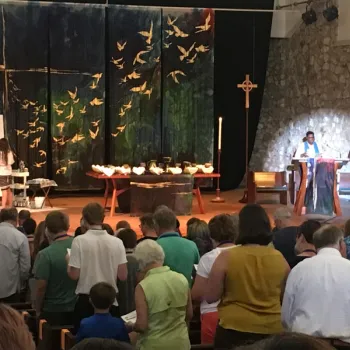Trending Topics

Find a Congregation
Discover welcoming communities near you and join us in worship, fellowship, and spiritual growth.
Who We Are
Upcoming Events
Quick Links
Young people offer unique gifts, perspectives, passions, and concerns that help build the church into the full expression of God’s love for the world, locally and nationally.
The Presbyterian Church (U.S.A.) celebrates the gifts of all gender identities and sexual orientations in the life of the church and affirms the full dignity and humanity of all people.
The Presbyterian Church (U.S.A.) supports the unique experiences and needs of racial and multiethnic individuals and groups, including Black, Indigenous, and People of Color communities.
















